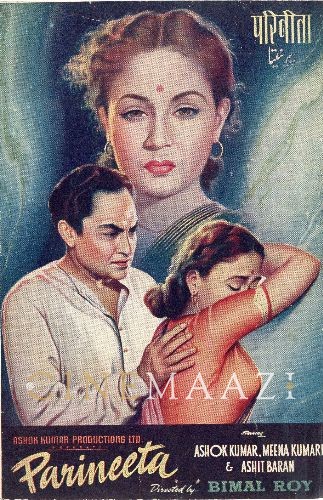Asit Baran

Subscribe to read full article
This section is for paid subscribers only. Our subscription is only $37/- for one full year.
You get unlimited access to all paid section and features on the website with this subscription.
Not ready for a full subscription?
You can access this article for $2 , and have it saved to your account for one year.
- Real Name: Asit Baran Mukherji
- Born: 19 November, 1913 (Calcutta, Bengal Presidency, British India)
- Died: 27 November, 1984 (Calcutta)
- Primary Cinema: Hindi
An actor, singer and theatre personality, Asit Baran won over audiences with his good looks, graceful, easy style of acting, and fine singing. He also endeared himself to those around him with his cultured and affable nature. One of the lesser known stars of New Theatres, he worked continuously for more than four decades on the silver screen, starring in numerous Bengali and Hindi films. He also started the theatre group Rangarash.
Born in Calcutta into a lower middle-class family, on 19 November, 1913, Asit Baran Mukherji could not pursue further studies and had to take up a job in the Telegraph Workshop at Alipore. However, music ran in his blood. He joined the Orphic Club in Serpentine Lane near Sealdah where he learnt to play the tabla from leading maestro Jnan Prakash Ghosh. He went on to join the Gramophone Company and AIR Calcutta as a tabla player. Hearing his lilting voice at a music performance, Pahadi Sanyal brought him to New Theatres. Impressed with his good looks and singing capability, he went on to be cast as romantic hero by director Hemchandra Chunder in the Bengali film Pratishruti (1941), whose Hindi version Saugandh (1942) also starring Baran won much appreciation.
Baran enjoyed a spree of success with multiple hits in Bengali and Hindi cinema, including Wapas (1943), Kashinath (1943) and Wasiyatnama (1945). He acted and sang in no less than 43 films, Hindi and Bangla together. Among his Hindi films were Saugandh (1942), Jawab (1942), Arabian Nights (1946), Parineeta (1953), Suhag Sindoor (1953), Manzoor (1949), Roop Kahani (1950), Faraar (1965), and Azadi Ke Baad (1951). Also active in Bengali theatre, Asit Baran later went on to play character roles, including the sensitive portrayal of the character Girin in Bimal Roy’s Parineeta (1953).
Leaving New Theatres in 1952 he had come to Bombay on the invitation of Sailesh Mukherjee, to act in Suhag Sindoor. He went on to act in 14 Hindi films and sang 24 songs in 10 films. His last film was Babla (1953). He returned to Calcutta and did more Bangla films.
Some of his best songs include Ab ayi basant bahar from Saugandh (1942); Door desh ka rahne wala aya desh paraye, a duet with Kanan Devi from Jawab (1942); Raja beti kekarala gunthlutu, a folk style duet with Shanti from Saugandh; Bhool najana aaj ki batein from Wapas (1943); Jeevan hai bekar bina tumhare, from Wapas (1943); Tumne mujhse prem jata kar duniya se begana kiya from Wapas (1943); Hum chale watan ki ore from Kashinath (1943); Hum kochwan hum kochwan from Wapas (1943); Man phoole nahi samaye, a duet with Bharati Devi, from Wasiyatnama (1945); and Tootahai nata meet ka from Parineeta (1953).
He was also the founder of a theatre group called Rangarash, which disseminated the teachings of Shri Ramkrishna Paramhans.
Asit Baran passed away on November 27, 1984 at the age of 69 in Calcutta.
-
Filmography (13)
SortRole
-
Kalankini Kankabati 1981
-
Alor Pipasa 1965
-
Smritituku Thaak 1960
-

Parineeta 1953
-
Suhaag Sindoor 1953
-

Chhoti Maa 1952
-

Azadi Ke Baad 1951
-
Roop Kahani 1950
-
Manzoor 1949
-
Wasiatnama 1945
-

Saugandh 1942
-
Pratisruti 1941
-










.jpg)



